Conflict Gold 101
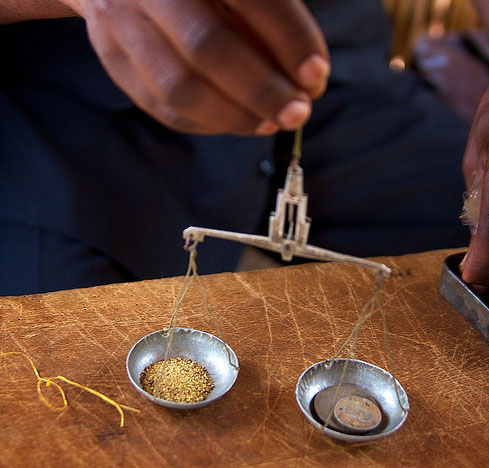
Today the Raise Hope for Congo campaign released a new campaign video, “Conflict Gold 101.” The video outlines the details of Congo’s conflict gold trade and puts the spotlight on jewelry companies who can play a role in reforming this deadly trade ...
Game Over?: Nintendo Bends to Activists’ Pressure on Conflict Minerals
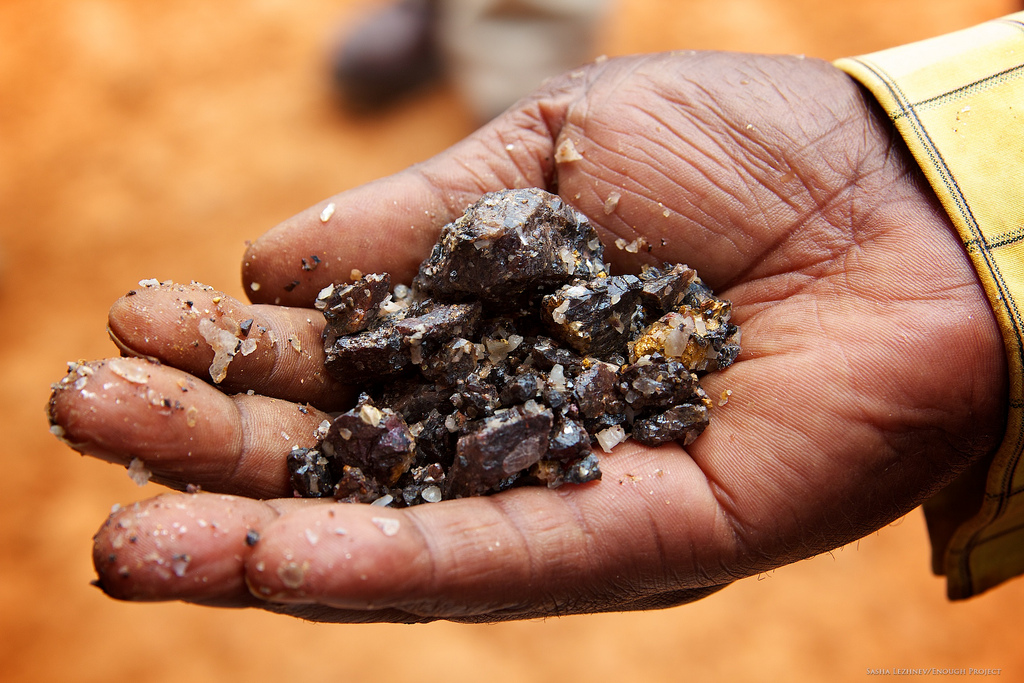
Continued pressure from citizen activists has finally started to crack Nintendo—the company that ranked dead last in the Enough Project’s 2012 company rankings on conflict minerals report released last month. Nevertheless, much more is needed to convince the world’s largest video-game console maker to move beyond issuing public statements and take meaningful action to clean up its supply chain ...
Enough Project to BBC: Let’s Use Technology to Fight for Human Rights
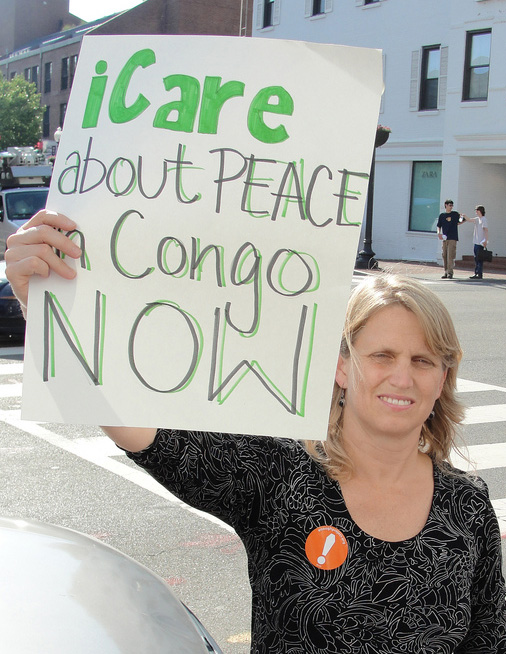
The BBC published an article today—notably quoting three Enoughers or former Enoughers—called “How to offset your ‘conflict minerals’ guilt,” about the link between our electronics and the atrocities committed by armed groups in Congo over the control of key mines. However, as the article reveals, this issue is not about feeling guilty but about harnessing the power of technology for good, to feel empowered to help spur change in eastern Congo ...
Tis’ the Season to Remember Congo… And Write a Letter to Your School Paper
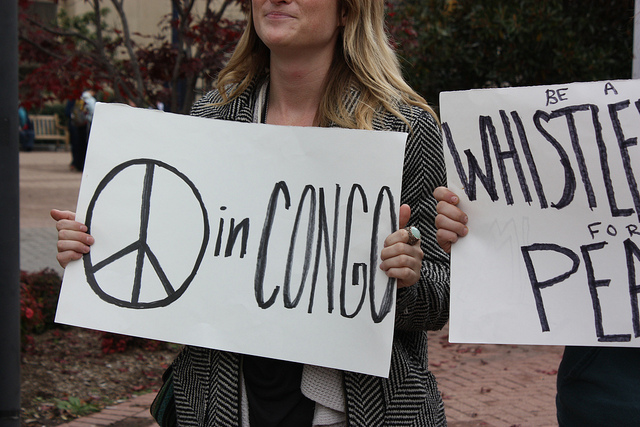
Student leader Carly Oboth wanted to use this season of heightened consumerism to make a point about our connection to the war in Congo through our electronics. Here's her Letter to the Editor of American University's newspaper. Take a look at hers and draft one of your own ...
Key Juncture in U.S. Engagement with Congo Sparks Student Rally at White House – Join Us
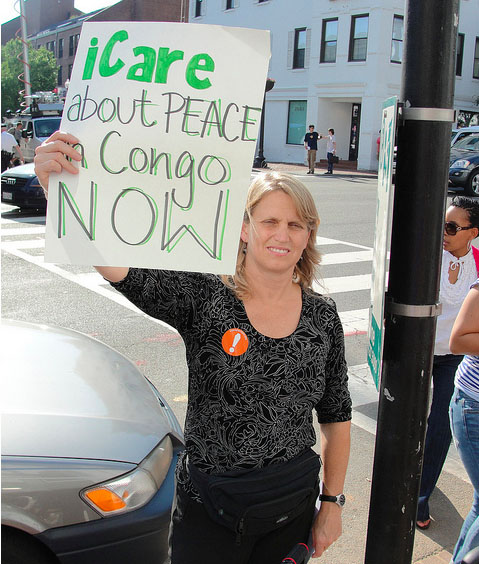
With election-related violence on the rise, and experts highlighting some encouraging trends, as well as apparent challenges, connected to the increased focus on the trade in conflict minerals from the East, now is a key moment for the U.S. government to ramp up its engagement in Congo. Next Monday, November 21, the George Washington University STAND chapter is hosting a rally for students, activists, human rights organizations, and members of the African diaspora community ...
Ohio School District Joins the Conflict-Free Movement for Peace in Congo
For over a year, students at the university level have been the leading voice in the movement for conflict-free products. Since Stanford University passed a proxy voting resolution in spring of 2010, four other universities, the most recent being the Ohio University Honors Tutorial College, have issued statements calling on electronics companies to clean up their supply chains, and over 50 schools across the nation are participating in the Conflict-Free Campus Initiative. Now high school students have joined the movement, using their power as individual consumers and collective communities to change the demand for conflict-free products and change the equation ...
Stanford Hosts First-ever Student Conference on Conflict Minerals
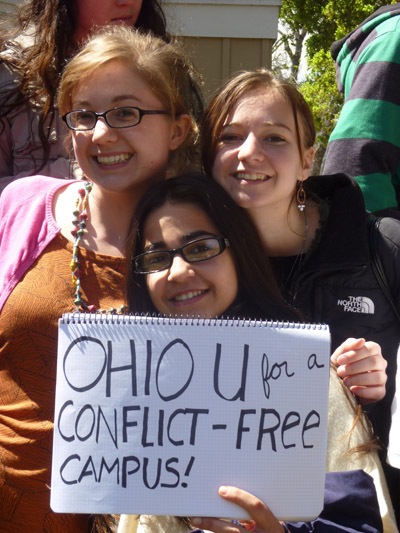
As testament to the growing influence of students in the movement to end the trade in conflict minerals from Congo, Stanford University recently hosted the very first gathering aimed at sharing and coordinating efforts to create conflict-free campuses. Students from 12 schools across the country gathered in Palo Alto, California, for a conference to learn more about the conflict minerals issue, what different companies, NGOs, and countries are doing to make a difference, and how a statement from their respective universities on the purchasing of conflict-free electronics can incentivize key stakeholders to work for peace in Congo ...
In Their Own Words: Survivors, Perpetrators Talk about Rape in Congo

“I’m here for treatment for the way they broke my body,” says Zamunda, a woman who survived rape in Congo whose story is featured in a moving multimedia presentation “Sexual Warfare in the Democratic Republic of Congo.” The special page on the Sydney Morning Herald’s website features video and photos taken in eastern Congo’s North Kivu province by photographer Kate Geraghty, who uses visual journalism to infuse a human dimension into the often overwhelming statistics that describe the use of rape as a weapon on war in Congo; in over 15 years of conflict, an estimated 5.4 million people have ...
Rep. Gwen Moore Joins Darfur Fast for Life
Today, Congresswoman Gwen Moore (D-WI) announced in the House chamber her decision to participate in the Darfur Fast for Life to raise awareness about the ongoing suffering of the people of Darfur, who for six long years have lived under the genocidal regime of the Sudanese President Omar al-Bashir. Congresswoman Moore noted that it has been five years since Congress declared the atrocities being committed in Darfur “genocide,” and yet people continue to suffer. Congresswoman Moore passionately made the following statement: From sunrise to sunset today, I will consume only water to demonstrate solidarity with the people of Darfur. It ...
Lost Boys and Girls of Sudan Urge Commitment from Obama and Ban Ki-moon
The Lost Boys and Girls of Sudan: The National Network is a non-profit corporation that seeks to mobilize the lost boys and girls of Sudan and the Sudanese Diaspora living in the United States to advocate for international support of a new Sudan. The lost boys and girls refer to children who were orphaned or displaced during the second Sudanese civil war between the North and South that erupted in 1983. In 1987, as the civil war raged, over 30,000 young children were forced to leave their homes in southern Sudan after their villages had been attacked and their parents ...

